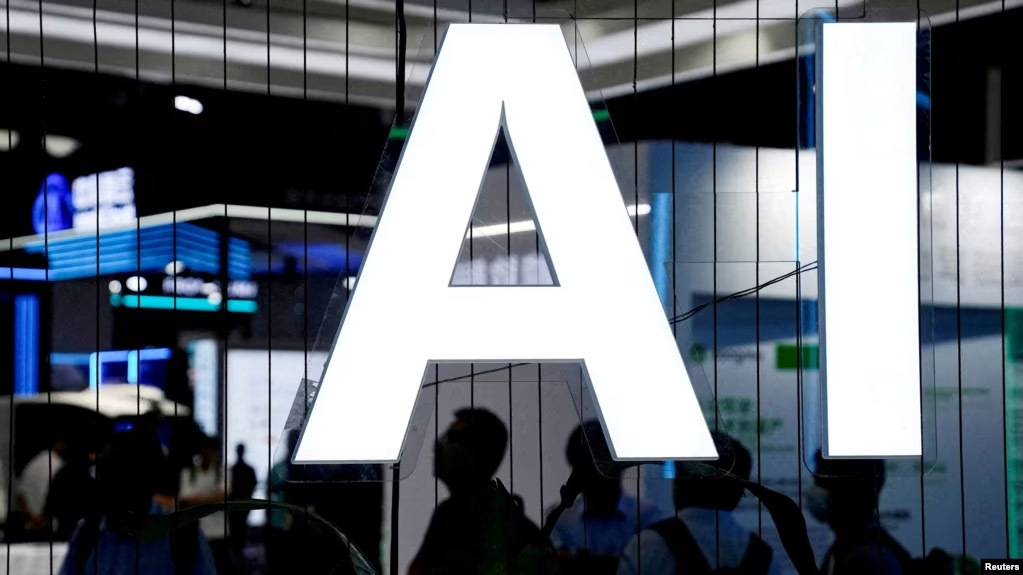Just as many in the United States are starting to explore how to use artificial intelligence to make their lives easier, U.S. adversaries and criminal gangs are moving forward with plans to exploit the technology at Americans’ expense.
FBI Director Christopher Wray issued the warning Monday, telling a cybersecurity conference in Washington that artificial intelligence, or AI, “is ripe for potential abuses.”
“Criminals and hostile foreign governments are already exploiting that technology,” Wray said, without sharing specifics.
“While generative AI can certainly save law-abiding citizens time by automating tasks, it can also make it easier for bad guys to do things like generate deepfakes and malicious code and can provide a tool for threat actors to develop increasingly powerful, sophisticated, customizable and scalable capabilities,” he said.
Wray said the FBI is working to identify and track those using AI to harm U.S. citizens but added that the bureau is being cautious about employing AI itself.
“To stay ahead of the threat at the FBI, we’re determining how we can ethically and legally leverage AI to do our jobs,” he said.
When contacted by VOA, the FBI declined to elaborate on its concerns about employing AI. Nor did the bureau say when or if it has used AI, even on a limited basis.
Other U.S. national security agencies, however, are currently making use of AI.
The Department of Homeland Security is using AI to combat fentanyl trafficking, counter child sexual exploitation and protect critical infrastructure, according to department officials, even as they roll out guidelines governing its use.
"Artificial intelligence is a powerful tool," Homeland Security Secretary Alejandro Mayorkas said in a statement last Thursday. “Our department must continue to keep pace with this rapidly evolving technology, and do so in a way that is transparent and respectful of the privacy, civil rights, and civil liberties of everyone we serve.”
DHS has also issued directives aimed at preventing its use of AI from being skewed by biased learning models and databases, and to give U.S. citizens a choice of opting out of systems using facial recognition technology.
But across multiple U.S. departments and agencies, the fear of the potential damage AI could cause is growing.
FBI officials, for example, warned in July that violent extremists and terrorists have been experimenting with AI to more easily build explosives.
nd they said a growing number of criminals appear to be gravitating to the technology to carry out everything from petty crimes to financial heists.
It is China, though, that is driving the bulk of the concern.
National Security Agency officials have warned that Beijing started using AI to disseminate propaganda via what they described as a fake news channel last year.
“This is just the tip of the iceberg,” David Frederick, the NSA’s assistant deputy director for China, told a cybersecurity summit earlier this month.
“[Artificial intelligence] will enable more effective malign influence operations," he added.
Such concerns have been bolstered by private cybersecurity companies.
Microsoft, for example, warned earlier this month that Chinese-linked cyber actors have started using AI to produce “eye-catching content” for disinformation efforts that has been gaining traction with U.S. voters.
“We can expect China to continue to hone this technology over time, though it remains to be seen how and when it will deploy it at scale,” Microsoft said.
For its part, China has repeatedly denied allegations it is using AI improperly.
“In recent years, some western media and think tanks have accused China of using artificial intelligence to create fake social media accounts to spread so-called ‘pro-China’ information,” Chinese Embassy spokesperson Liu Pengyu told VOA in an email, following the publication of the Microsoft report.
“Such remarks are full of prejudice and malicious speculation against China, which China firmly opposes,” Liu added.


